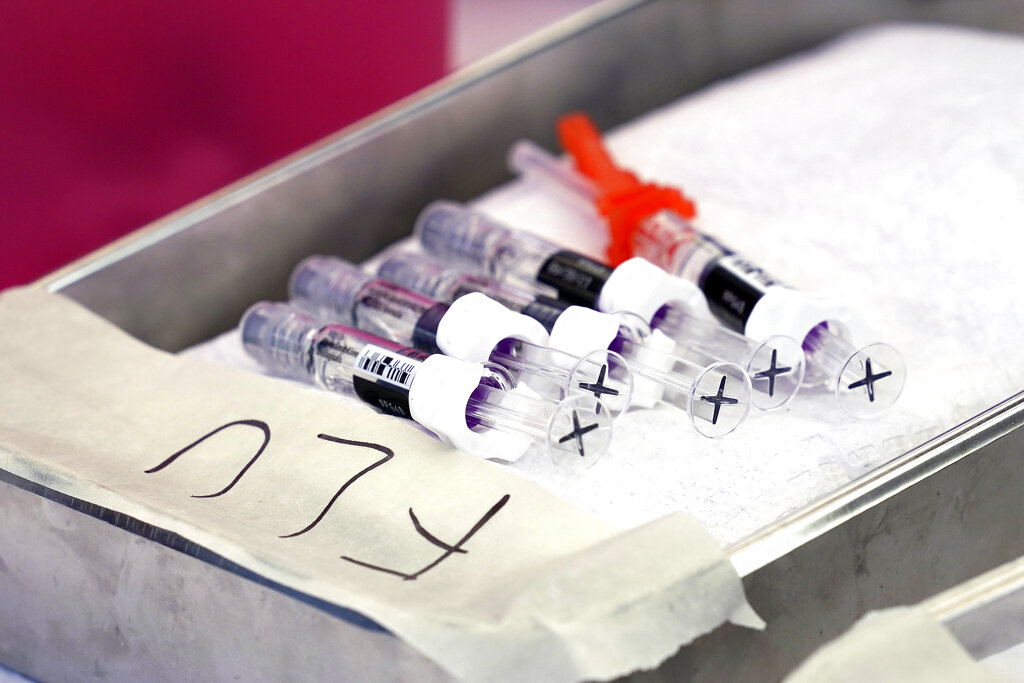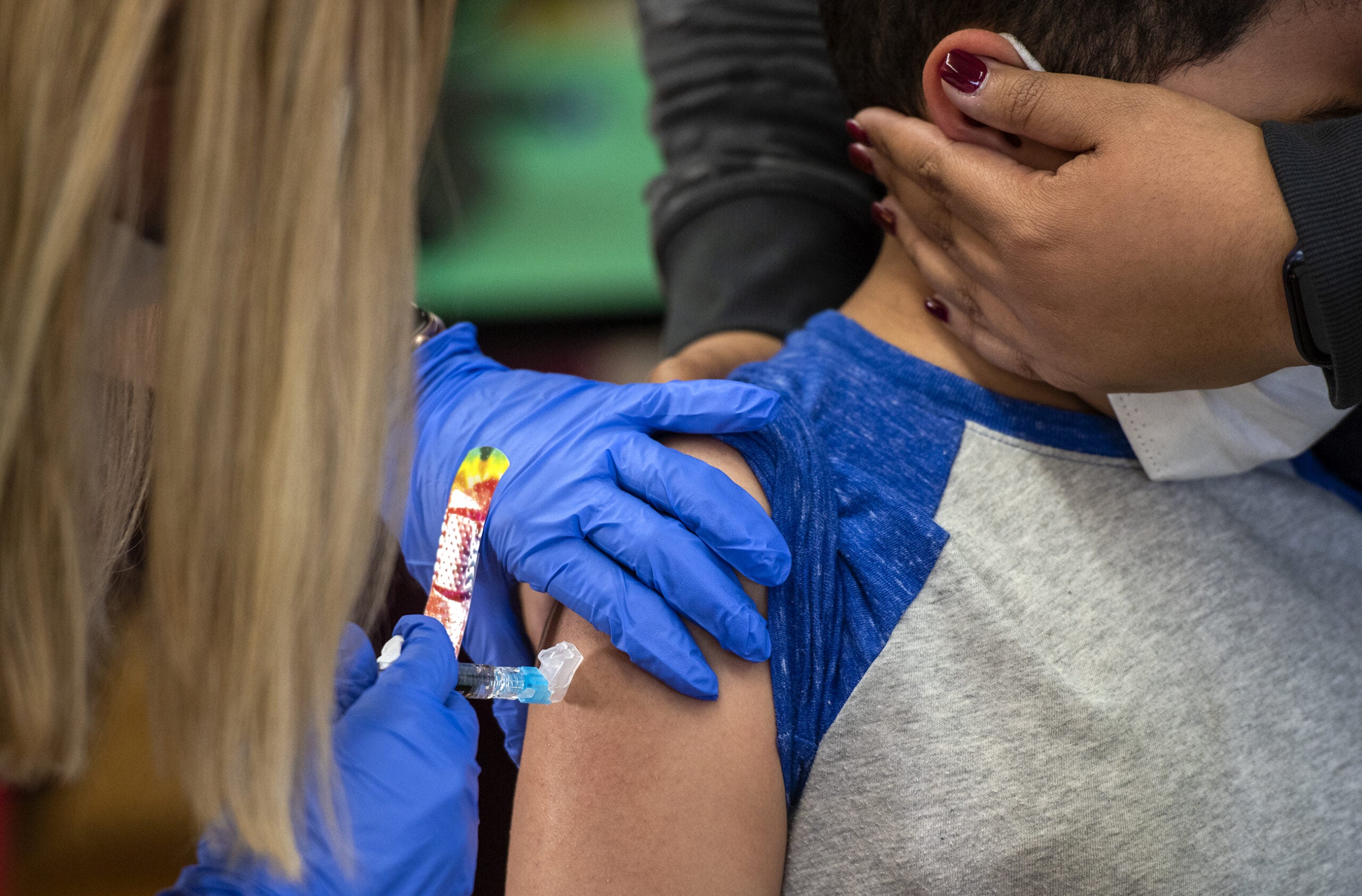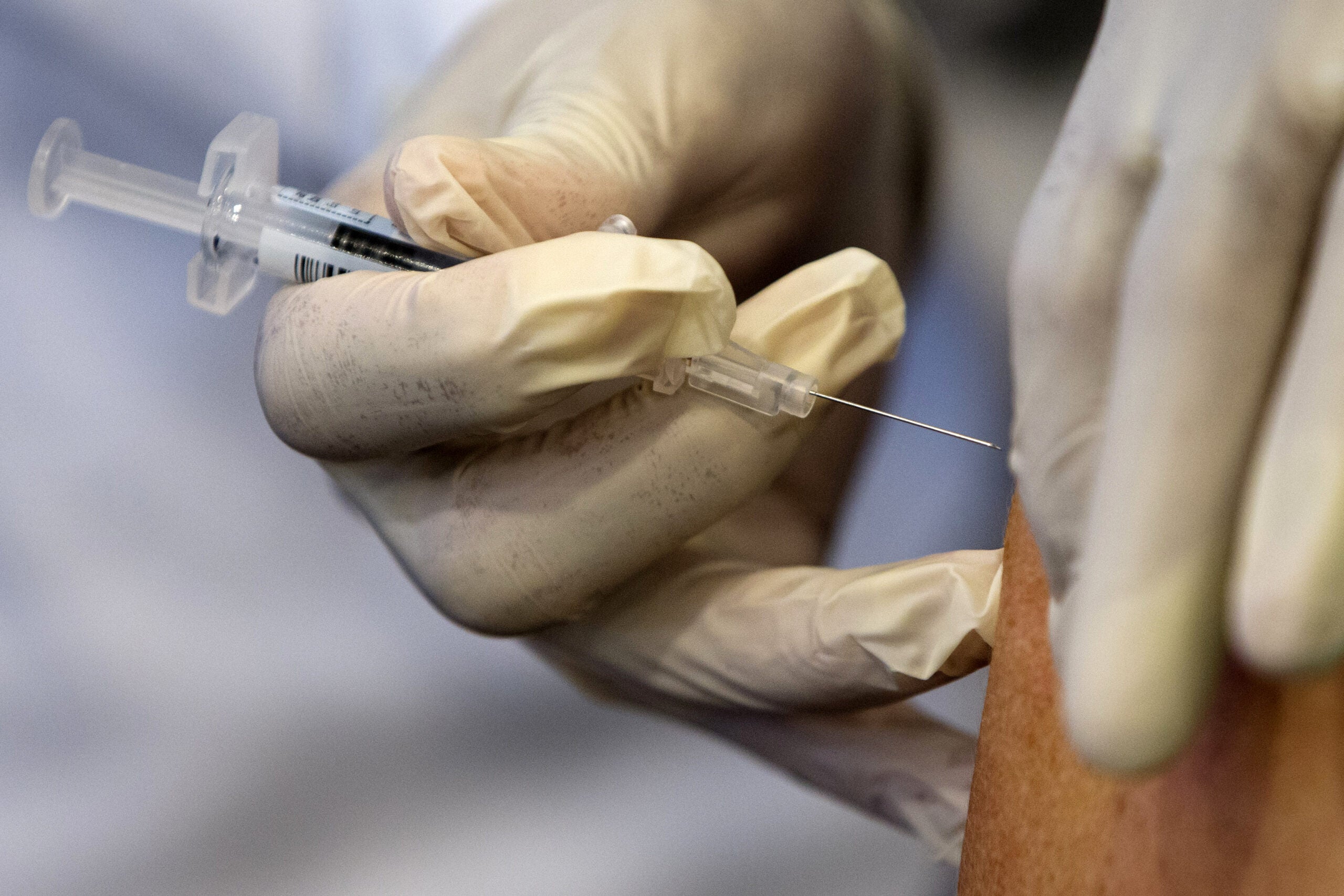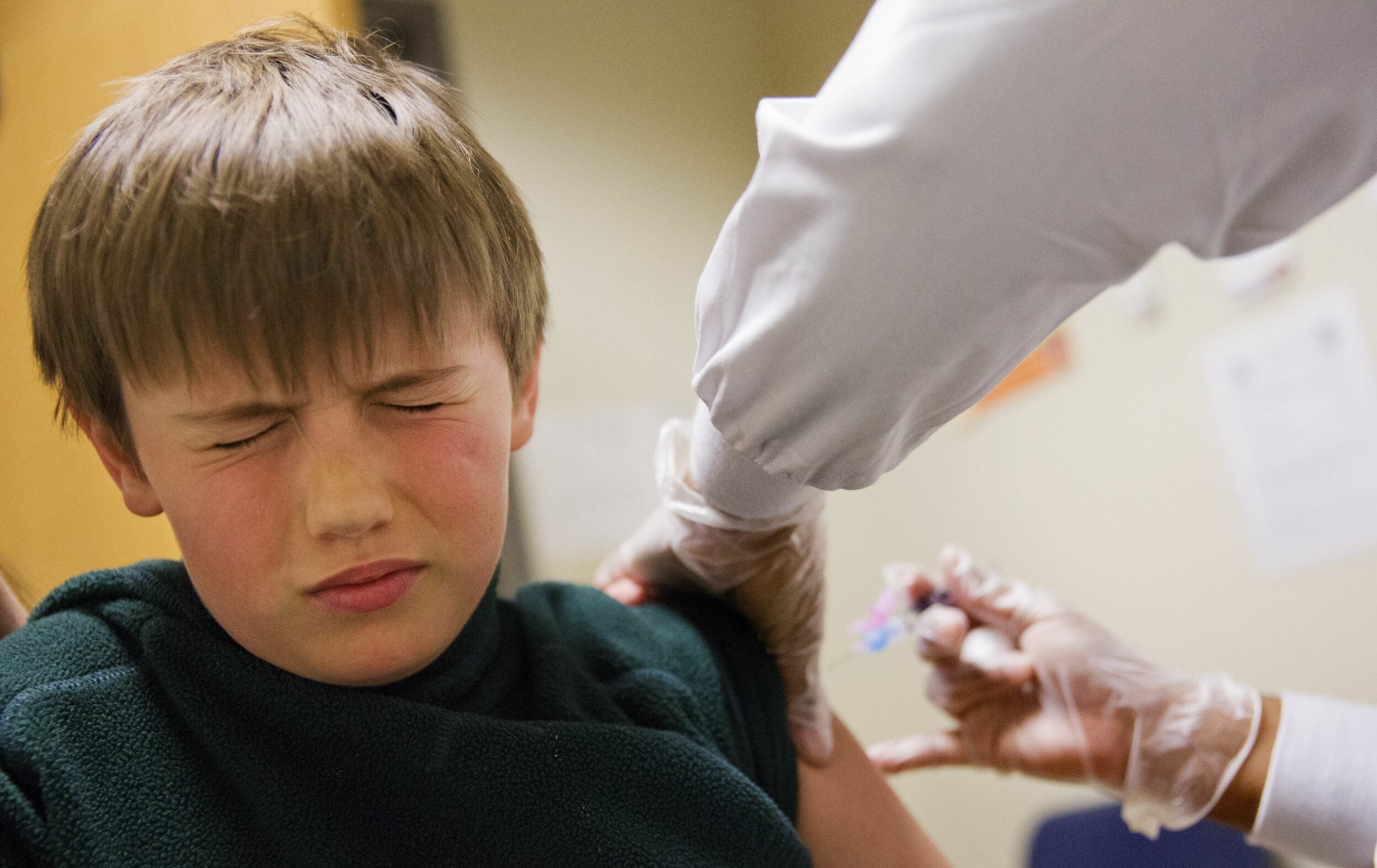As an aggressive flu season ravages Wisconsin hospitals, public health officials are once again urging people to get their flu shots.
But not all hospitals require their employees to get those vaccines, and hospital immunization rates vary widely, according to a review of federal data by Wisconsin Public Radio.
Across the state and country, the vast majority of hospital staff did get their flu shots, according to figures reported by hospitals to the Centers for Medicare and Medicaid Services. On average, 90 percent of staff at hospitals across Wisconsin got the vaccine, which was higher than the national average of 80 percent, according to the data which covers the last flu season.
News with a little more humanity
WPR’s “Wisconsin Today” newsletter keeps you connected to the state you love without feeling overwhelmed. No paywall. No agenda. No corporate filter.
But there were outliers.
INTERACTIVE: Look up vaccination rates
Which Wisconsin hospitals had their lowest employee flu vaccination rates?
The Midwest Orthopedic Specialty Hospital in Franklin had the lowest flu vaccination rate of any Wisconsin hospital for which data was available. There, just 34 percent of 124 workers got vaccinated against the flu last season, according to the CMS reports.
The hospital was founded by physician owners and Ascension Wisconsin, according to its website. An Ascension representative did not respond to a request for comment. Several other hospitals affiliated with Ascension also had among Wisconsin’s lowest employee flu vaccination rates — at the Orthopedic Hospital of Wisconsin in Glendale and at Ascension campuses in Milwaukee, Chilton and Appleton, the employee vaccination rate ranged from 68 percent to 70 percent.
Vernon Memorial Hospital in Viroqua likewise ranked at the bottom for Wisconsin vaccination rates, with 70 percent of employees getting the flu vaccine. A spokeswoman said the hospital “highly encourages” employees get the flu vaccine.
The U.S. Centers for Disease Control and Prevention urge annual flu shots for anyone over 6 months old, and experts say the vaccines are especially important for health care workers.
High flu immunization rates coincide with mandatory vaccinations for employees
Other Wisconsin hospitals had flu vaccination rates close to 100 percent, and those facilities tend to have mandatory vaccine policies.
That’s the case at the Stoughton Hospital Association in Dane County, where 99 percent of 551 workers had their flu shot last season.
Employees at the Stoughton-based hospital are required to get annual flu shots, as well as one or two shots of a primary COVID-19 vaccine series unless they can cite medical or religious exemptions, said the hospital’s Chief Nursing Officer Amy Hermes.
SSM Health, which has seven hospitals in Wisconsin, also requires primary COVID-19 vaccines, and has been mandating annual flu shots for over a decade, unless employees use a medical or religious waiver. The purpose of the policy is two-fold, said Jenny Bothun, who oversees employee health for SSM Wisconsin.
“One is the protection of our patients and the second one is the protection of staff, which obviously we need to keep healthy and in the business of caring for patients,” Bothun said.
Two SSM hospitals — St. Mary’s in Madison and Ripon Medical Center in Fond Du Lac County — had among the highest flu vaccination rates in the state with 98 percent of staff vaccinated.
Flu shots are particularly important for health care workers who interact with patients, since many could be sick, elderly or otherwise vulnerable, said Nancy Foster of the American Hospital Association.
“Like other infectious diseases, flu can be easily transmitted and unlike some infectious diseases of flu can be transmitted before you know you’re symptomatic,” Foster said.
What patients should know about the federal flu shot statistics
The American Hospital Association recommends that hospitals either implement mandatory flu vaccination policies for workers, or require workers without the flu vaccine to wear masks around patients, according to a policy adopted by the association’s board in 2011.
Foster said it’s advisable for patients to seek out hospitals with high employee vaccination rates, though she cautioned that the statistic should be just one factor among many when choosing a hospital. Since the figures reported by hospitals to CMS include all hospital staff, the percentage could also include employees who don’t come into regular contact with patients, she said.
“So it might be somebody who works in the laundry or in the back business office or elsewhere in the facility that won’t have typical patient contact,” she said.
Officials at one Wisconsin hospital say the facility’s latest flu vaccination rate, as published by CMS, is not accurate. The most recent report shows only 43 percent of 630 staff at Hudson Hospital in St. Croix County got the flu shot, the second-lowest rate across all of Wisconsin. Hospital spokeswoman Annelise Heitkamp said that figure is artificially low because the hospital recently switched to a new data collection system, which disrupted its reporting. Heitkamp said she believes the actual flu vaccination rate for employees last season was at least 70 percent.
“We are confident that next year’s data will be a comprehensive and true reflection of our colleagues’ vaccination status,” Heitkamp wrote in an email.
Although Hudson Hospital doesn’t require flu vaccines, staff who aren’t up-to-date with both COVID-19 and flu vaccinations must wear face masks at all times, Heitkamp said.
As hospitals face triple burden of flu, COVID and RSV, flu shots are even more important this year
This year’s flu season has been especially rough on hospitals, because it began early, said Foster, the AHA’s vice president for quality and patient safety policy. And she said it appears many people are coming down with more aggressive influenza strains that make them sicker.
As hospitals face the triple burden of spreading COVID-19, flu and another respiratory virus called RSV, there are reports of shortages of drugs including Tamiflu. That’s why it’s essential for the general public to get vaccinated against the flu and to be fully vaccinated and boosted against COVID-19, Foster said. There’s no vaccine that protects against RSV.
“If you don’t want to take the flu vaccine for yourself, please think about taking it to protect the elderly relatives you’ll be seeing over the holidays, and the very young relatives you might be seeing whether it’s RSV or flu,” Foster said. “We’ve seen too many children hospitalized this season, and we are really hoping to prevent more of that.”
How many workers got their flu vaccines? Look up rates at Wisconsin hospitals
Wisconsin Public Radio used data reported by hospitals to the Centers for Medicare and Medicaid Services to build a database of employee flu vaccination rates at Wisconsin hospitals. You can access that data in the search box below. To look up a facility, begin by typing the hospital name, the hospital’s address or the zip code or county in which it’s located.
Wisconsin Public Radio, © Copyright 2025, Board of Regents of the University of Wisconsin System and Wisconsin Educational Communications Board.






